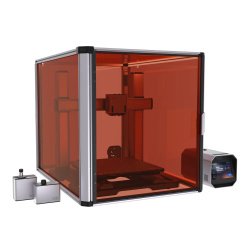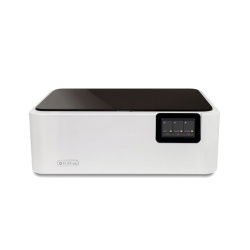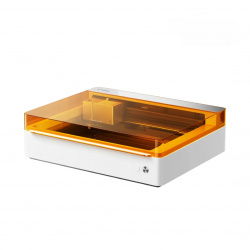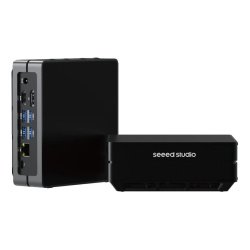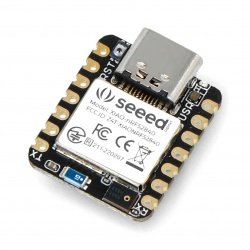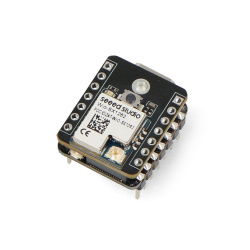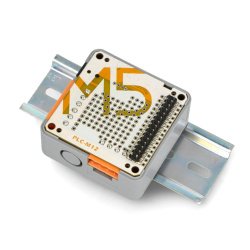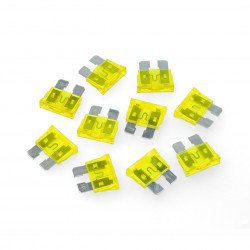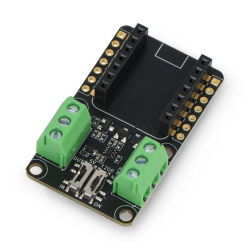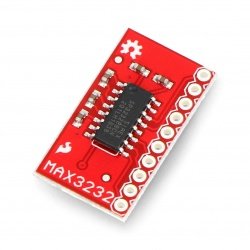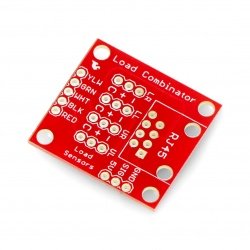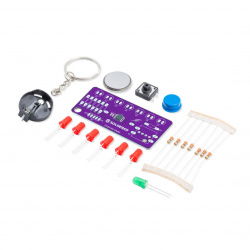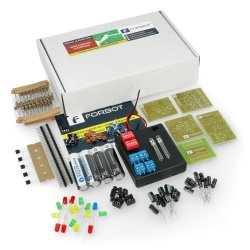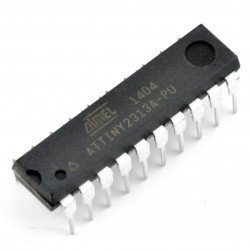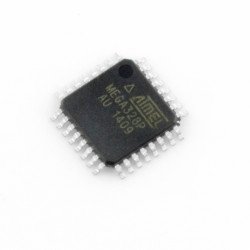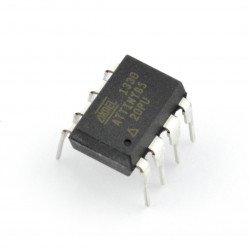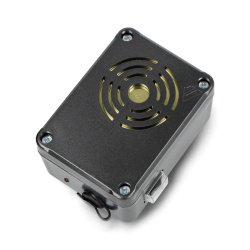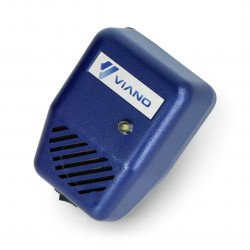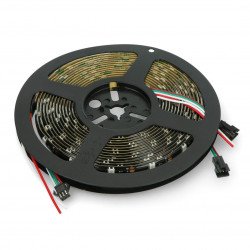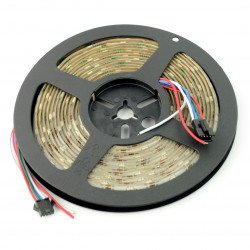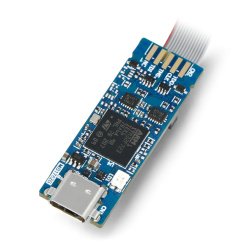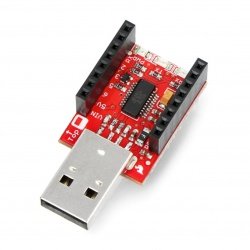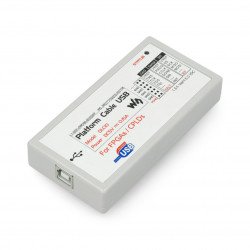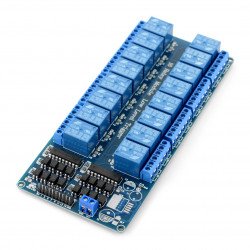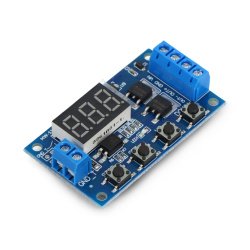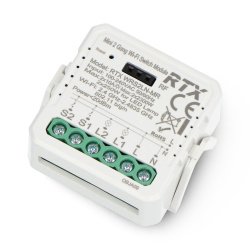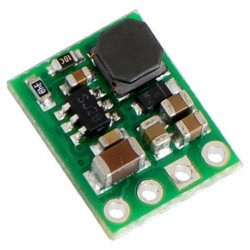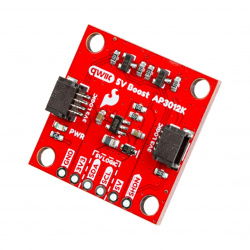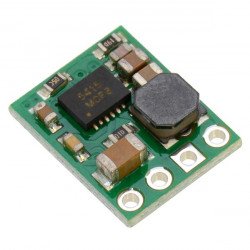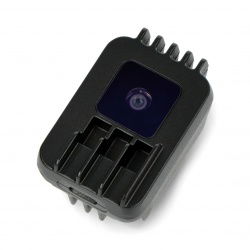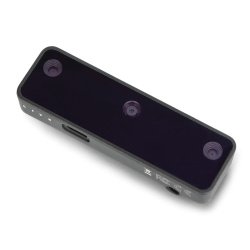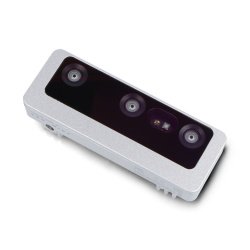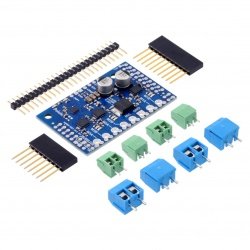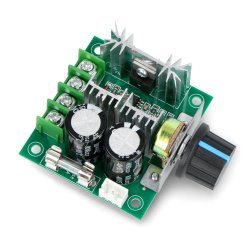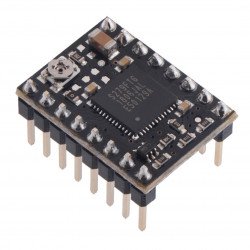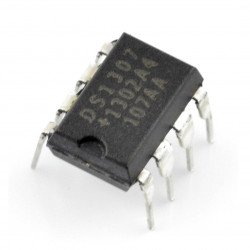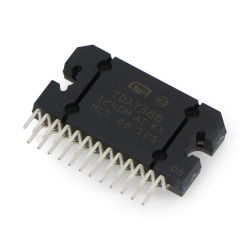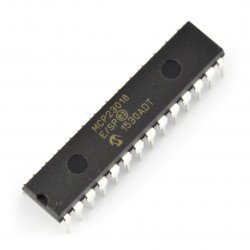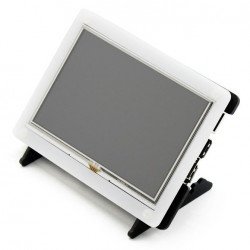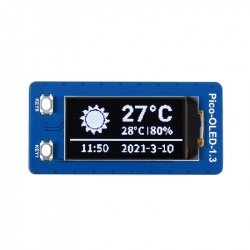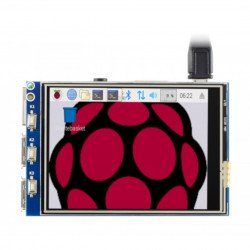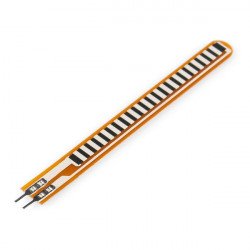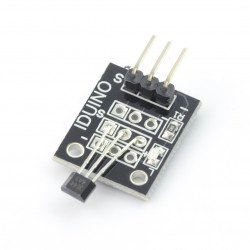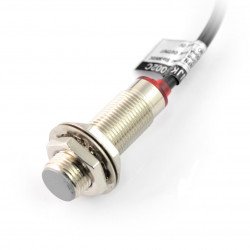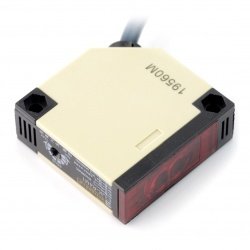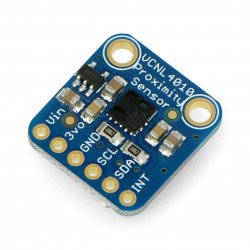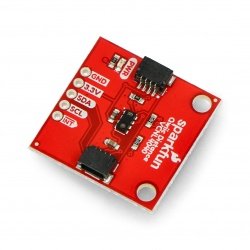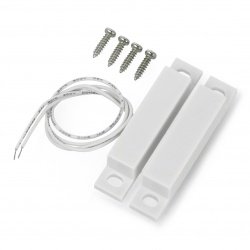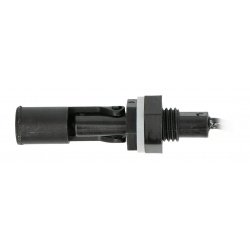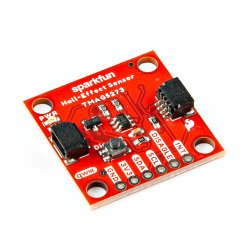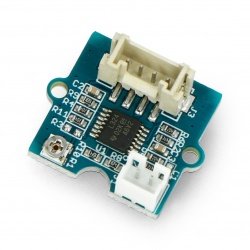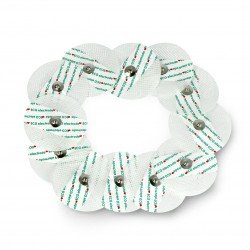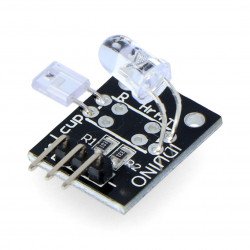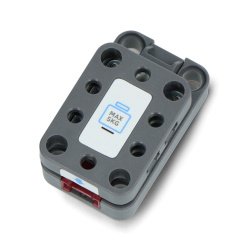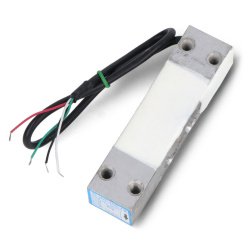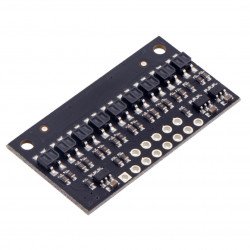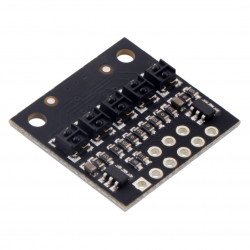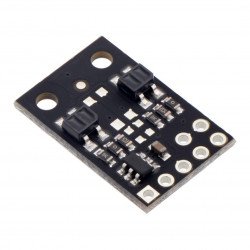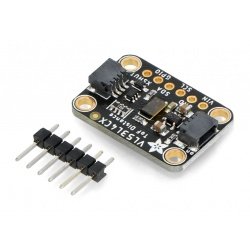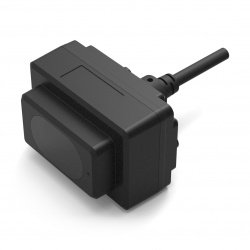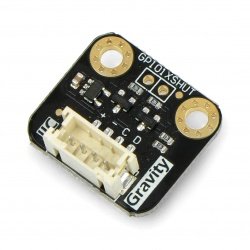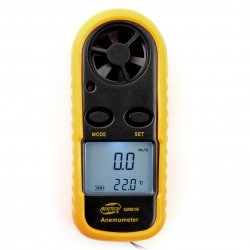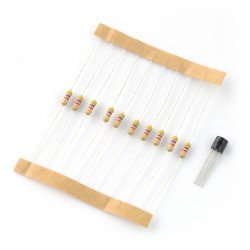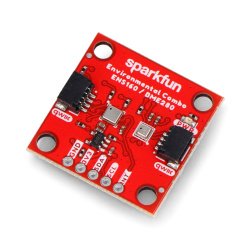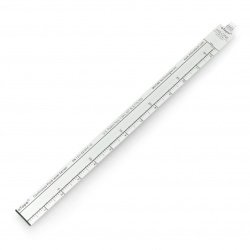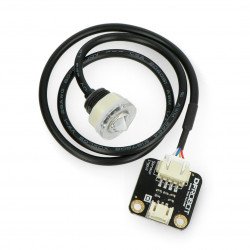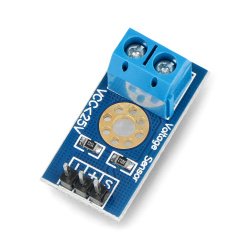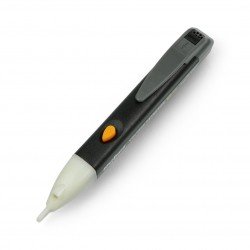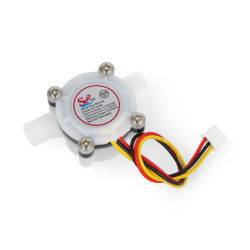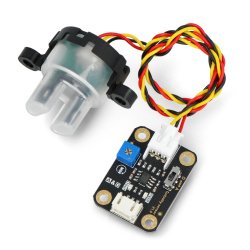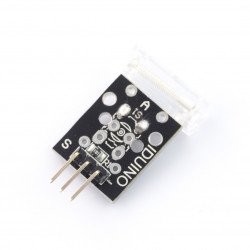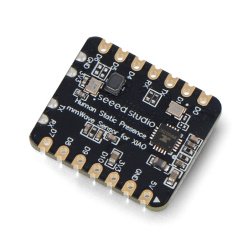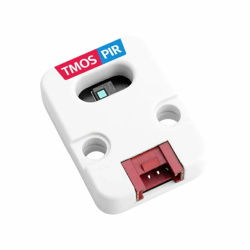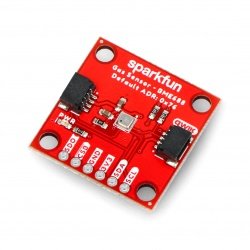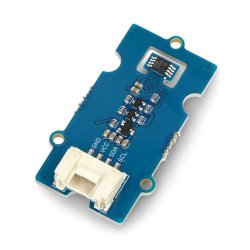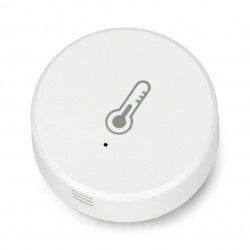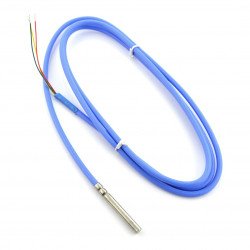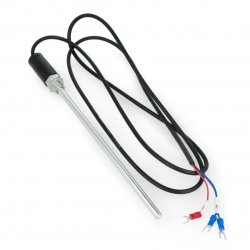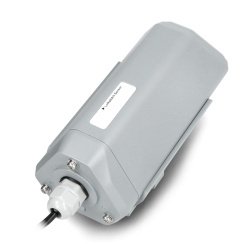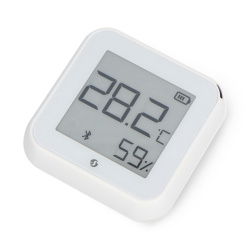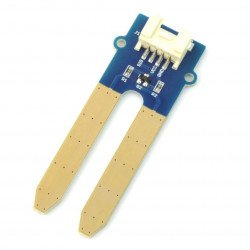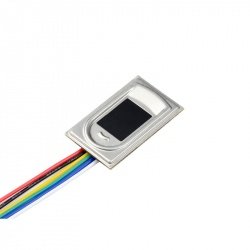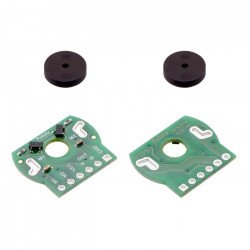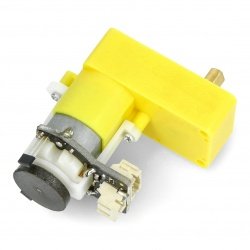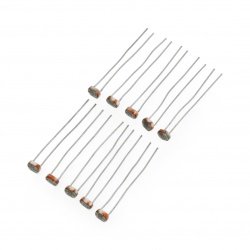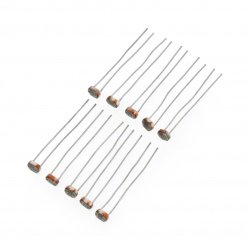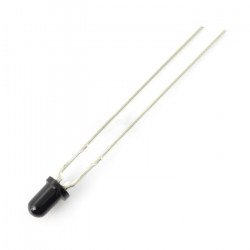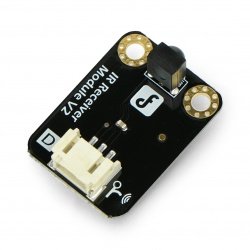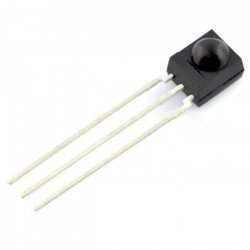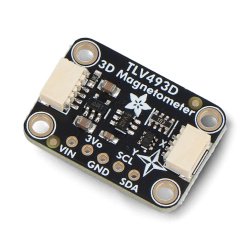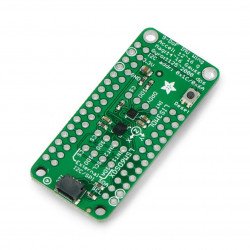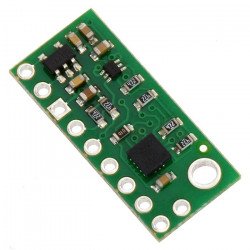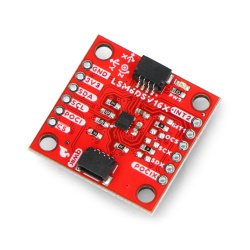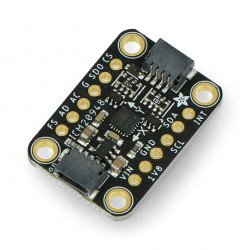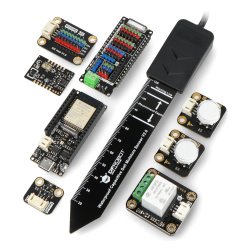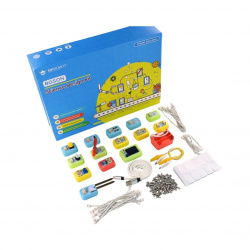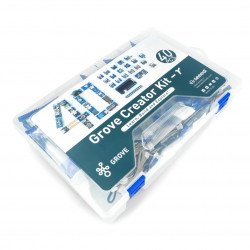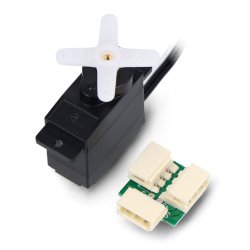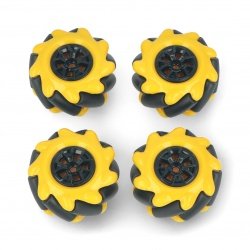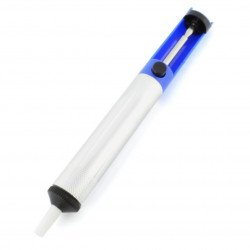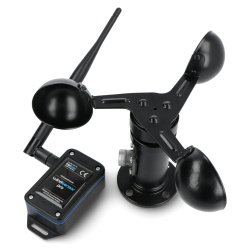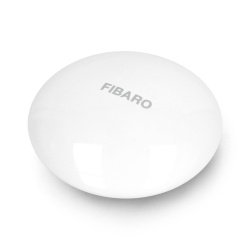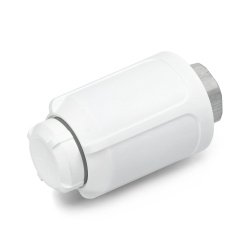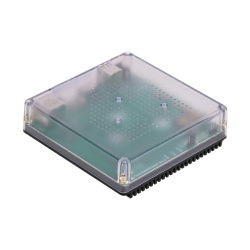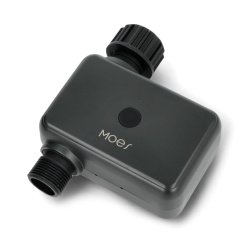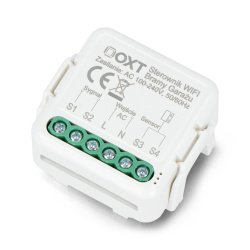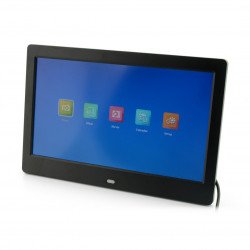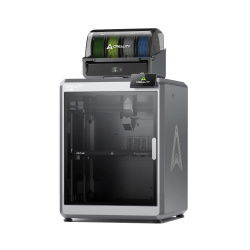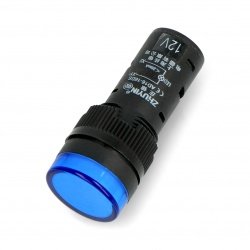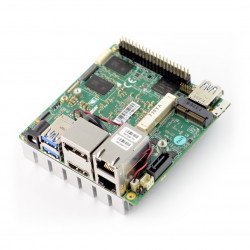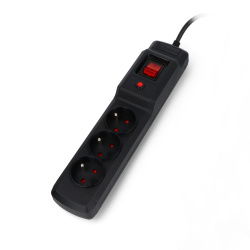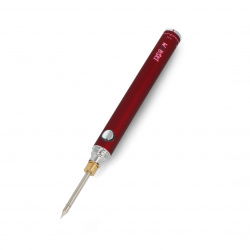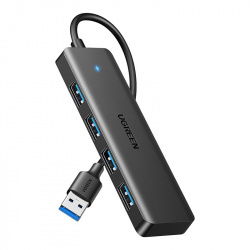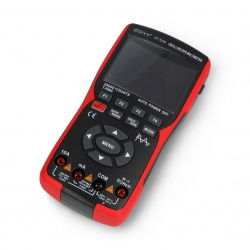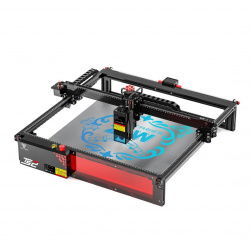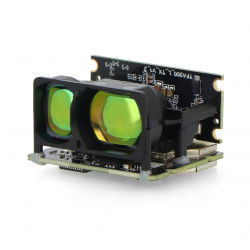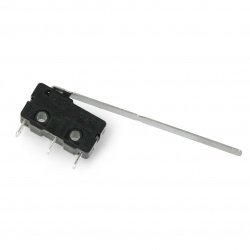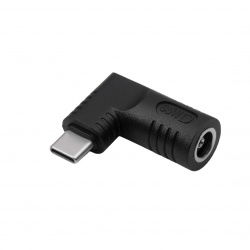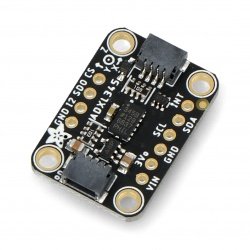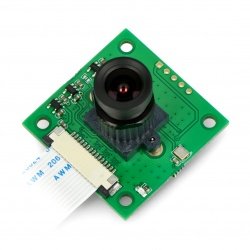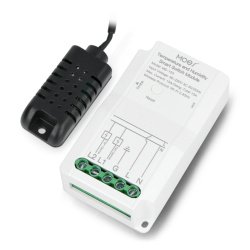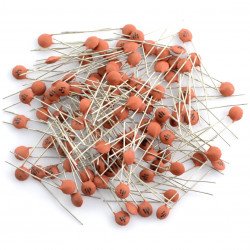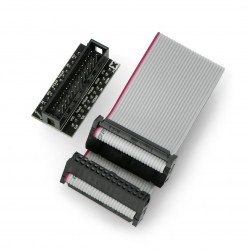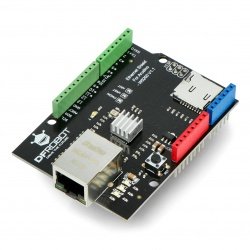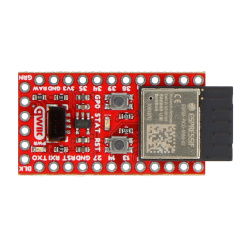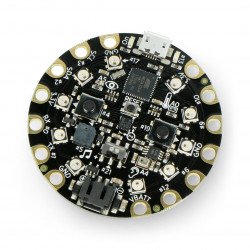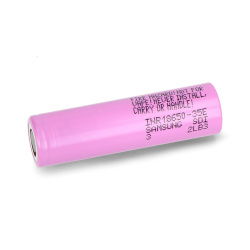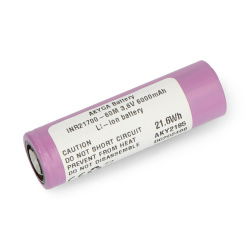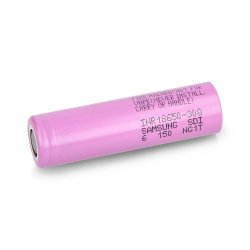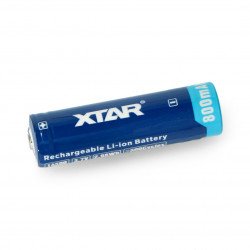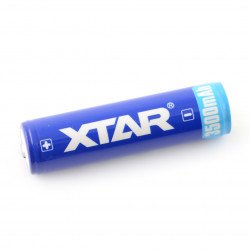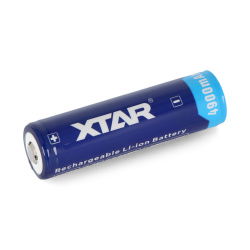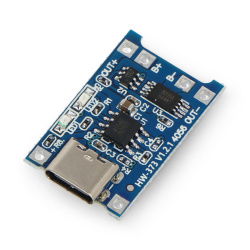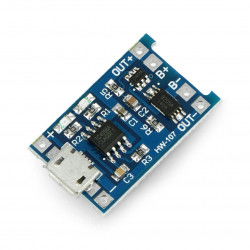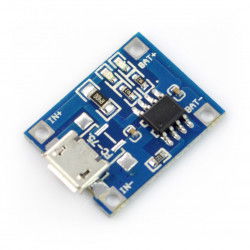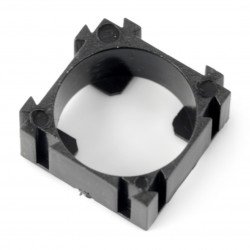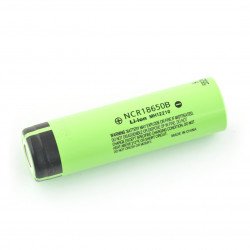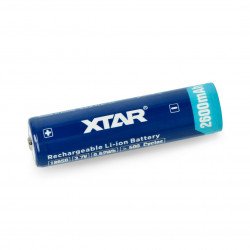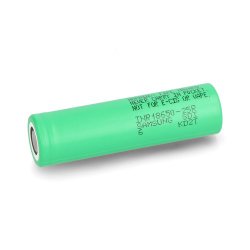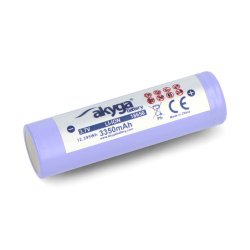Li-Ion batteries have a liquid electrolyte, which distinguishes them from Li-Pol batteries, which use gel or solid cells. It has two electrodes, one of which is made of metal oxides and the other of carbon. Lithium-ion batteries are commonly used in electronic equipment, including modern smartphones and mobile laptops. They are also one of the most popular energy sources for robots and electronics. The first lithium batteries appeared on the market in 1970, but the breakthrough for lithium-ion batteries came in 1979. However, the commercial lithium-ion battery was not available until 1991. It was used in Sony brand cameras, followed by a rapid increase in interest in this power source and other electronics companies followed in the footsteps of the Japanese company. Today Li-Ion batteries are used much more often. They are mainly appreciated for high cell voltage of 3.6V.
Li-Ion batteries
18650 Li-Ion Samsung INR18650-35E 3400mAh
This pink 18650 lithium-ion battery has a nominal voltage of 3.6V and a capacity of 3400mAh. The cell dimensions are small: 65.25mm high and 18.55mm in diameter.Akyga 21700 Li-ion cell - 6000mAh
The 21700 lithium-ion battery from Akyga has a nominal voltage of 3.6 V and a high capacity of 6000 mAh , making it an ideal choice for applications requiring long-lasting...18650 Li-Ion Samsung INR18650-30Q 3000mAh
18650 li-ion rechargeable battery from Samsung. Nominal voltage: 3,7 V. Capacity 3000 mAh.14500 Li-Ion Xtar 800mAh with protections
Li-Ion 14500 rechargeable battery from Xtar. Nominal voltage: 3,7 V. Capacity: 800 mAh. It has built-in protection against: overcharging, excessive discharge, overloading,...Cell 18650 Li-Ion XTAR - 3500mAh
The powerful Xtar lithium-ion battery with a capacity of 3500 mAh . It has protection against overcharging, over-discharge, overloading and short-circuit.21700 Li-Ion XTAR - 4900mAh cell
Battery 21700 lithium-ion manufacturer Xtar with a nominal voltage of 3.6 V and a high capacity of 4900 mAh . It has built-in protection against discharge, overcharge,...14500 Li-Ion Xtar 1200mAh cell with protection
The Xtar 14500 lithium-ion battery, with a nominal voltage of 3.6V and a capacity of 1200mAh, is an efficient and safe power source for EDC flashlights, headlamps, and...Li-Ion charger HW-373 v1.2.1 TP4056 1S 3,7V USB type C with protection
Charger for single-cell 3.7V lithium-ion batteries. The module is based on the TP4056 chip . The system is powered via a USB Type-C connector or optionally via cables...Li-Ion charger TP4056 1S 3,7V microUSB with protection
A simple charger for single-cell lithium-ion batteries with a nominal voltage of 3.7V. The system is powered via a microUSB connector or via cables. The module is protected...Li-Ion charger TP4056 1S 3,7V miniUSB
A simple charger for 1-cell lithium-ion batteries with a nominal voltage of 3.7 V. The system is powered via a miniUSB connector or via cables.Li-Ion charger TP4056 1S 3,7V microUSB
A simple charger for 1-cell lithium-ion batteries with a nominal voltage of 3.7 V. The system is powered via a microUSB connector or via cables.Cell holder for Li-Ion battery type 18650
Black, plastic holder for rechargeable batteries Li-Ion 18650. Dimensions: 22 x 22 mm, inner diameter: 18.3 mm.Cell 18650 Li-Ion Panasonic NCR-18650B 3400 mAh
Battery Li-Ion 18650 Panasonic. Rated voltage: 3.6 V Capacity 3400 mAh.Power cell 18650 Li-Ion XTAR - 2600mAh
Powerful Xtar lithium - ion battery with a capacity of 2600 mAh built on the original Samsung cell. It has protection against overcharging, excessive discharge, overloading...18650 Li-ion Samsung INR18650-25R 2500mAh 20A
18650 lithium-ion cell from Samsung. It has a nominal voltage of 3.7 V , a capacity of 2500 mAh and a high maximum discharge current - 20 A.18650 Li-Ion INR18650-F1AN 2200mAh
18650 lithium-ion battery in blue housing. The capacity of the cell is 2200 mAh and its nominal voltage is 3.7 V. Product shipped in a random color.18650 Li-Ion INR18650-F1HR 3350mAh
18650 lithium-ion battery in a purple housing. The cell capacity is 3350 mAh and its nominal voltage is 3.7 V.See also
Lithium-ion batteries - additional information
Thanks to the excellent ratio of the amount of stored energy to mass, they are now used in all types of electronic equipment, such as laptops or mobile phones. Robotics and electronics engineers also like to use them as an energy source. Li-Ion cells can easily power many of your projects.
Li-Ion batteries - Advantages and characteristics
Lithium-ion batteries have a big advantage that lithium-polymer batteries lack - they have a uniform, standardized housing shape . Polymer batteries are distinguished by their freedom of shape, but this makes it difficult, for example, to prototype new devices. However, the standard shape of a lithium-ion battery can be easily modeled in a graphics program. Lithium-ion batteries are often used as stationary energy storage for renewable energy sources (these are characterized by unstable operation). Currently, this type of energy sources are used in electric cars such as Tesla Roadster or Nissan Leaf. Replacement of lithium-ion batteries due to their service life is very rare.
Advantage of Li-Ion batteries over other solutions
The decisive advantage of Li-Ion batteries over the recently used NiMH batteries is approximately twice the energy capacity (comparing cells of the same size and weight), as well as longer battery life. Another great advantage is the lack of the so-called memory effect, known from older models of mobile phones, in which, after purchase, the phone had to be discharged and fully charged three times for the battery to function properly and as efficiently as possible. Lithium-ion batteries are usually sold as a single cell of various sizes (depending on energy capacity). In addition, lithium-ion batteries in many devices are connected to a system that constantly monitors the depth of discharge. This solution further extends the life of lithium-ion batteries.
Lithium-ion cells (Li Ion) - Check what we offer?
Our offer includes batteries with an output voltage of 3.7 V and (depending on the model) with capacities of 800 mAh, 2100 mAh, 2200 mAh, 2500 mAh, 2600 mAh, 3001 mAh, 3400 mAh, 3500 mAh. When used properly, a lithium-ion battery is an effective and safe power source. Our assortment includes only products made by renowned manufacturers - Sony, XTAR, Samsung, OEM and Panasonic. If you have any questions or doubts regarding the selection of lithium-ion batteries, please contact our experienced advisors.
Li-Ion batteries - FAQ
Rechargeable batteries and Li-Ion batteries should be stored away from sunlight, heat and moisture. The storage place should be ventilated, dry and maintain a relatively constant temperature. The ideal battery storage temperature is around 15°C, but at least room temperature should be sufficient.
The safe value of charging current is usually half the capacity. If we do not know this value, the batteries should be charged with the lowest possible current. It is worth trying modern and safe chargers for Li-Ion batteries .
Do not charge the Li-Ion cell when the temperature is lower than 0°C or higher than 45°C. Lithium-ion cells and batteries perform best when at room temperature, so charging at a temperature between these limits will provide the best charging and extend battery life.




